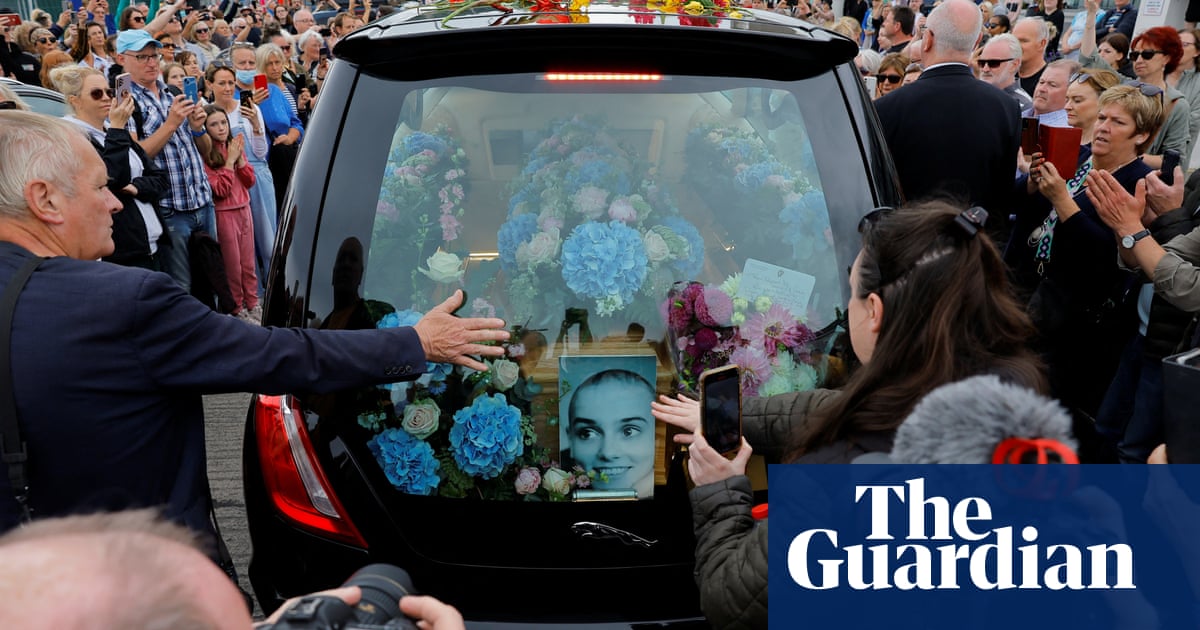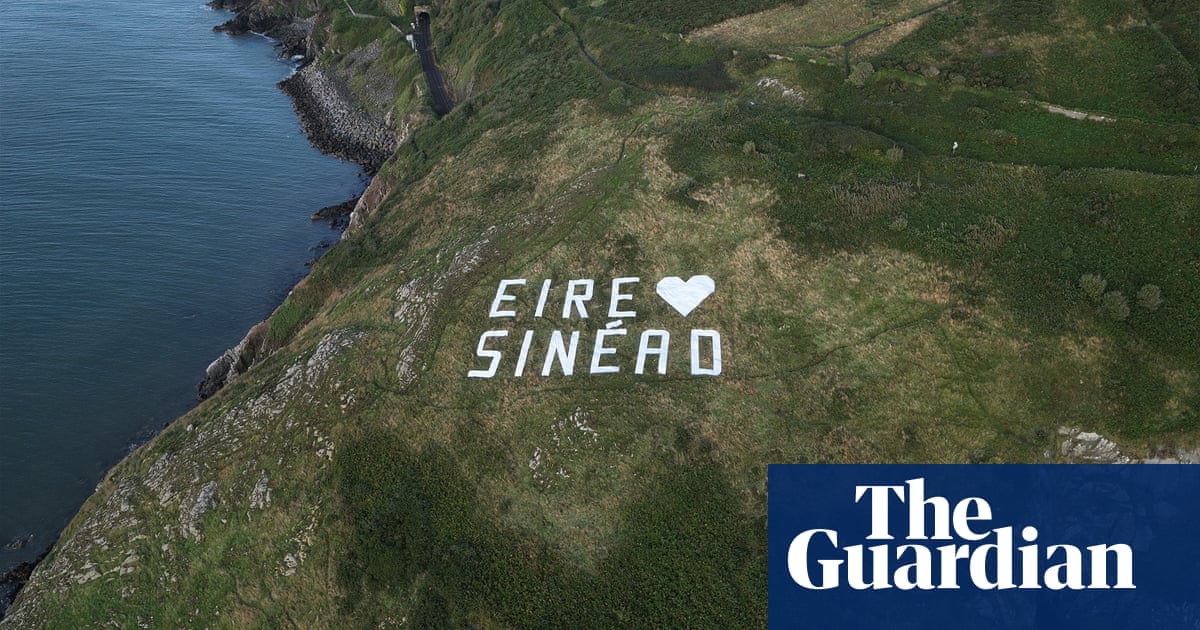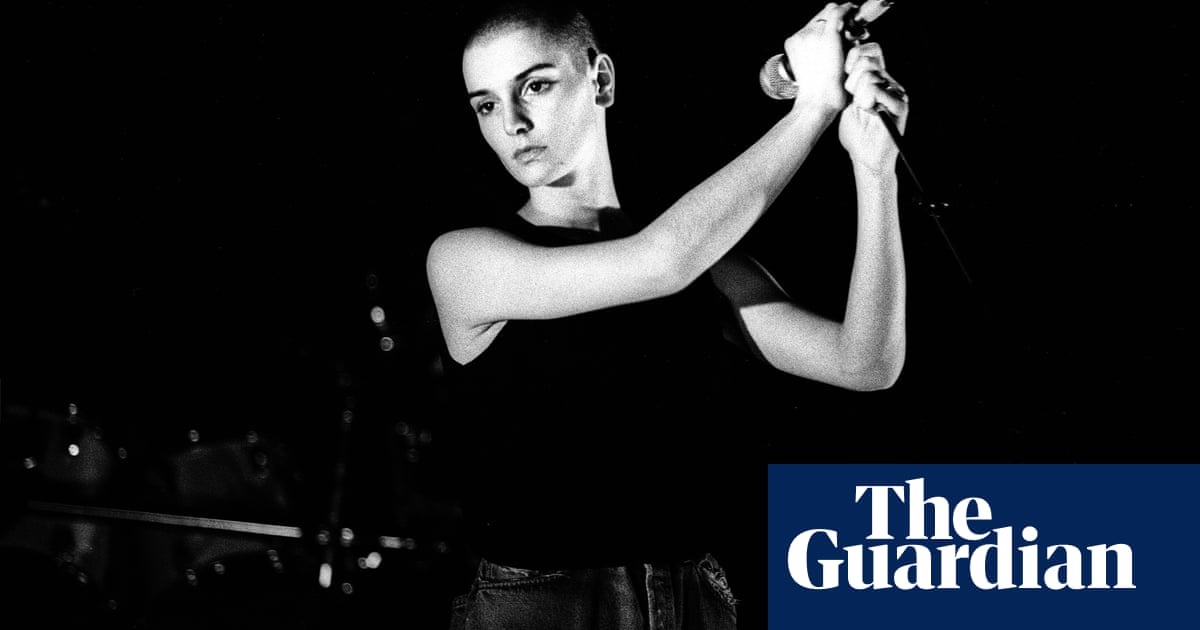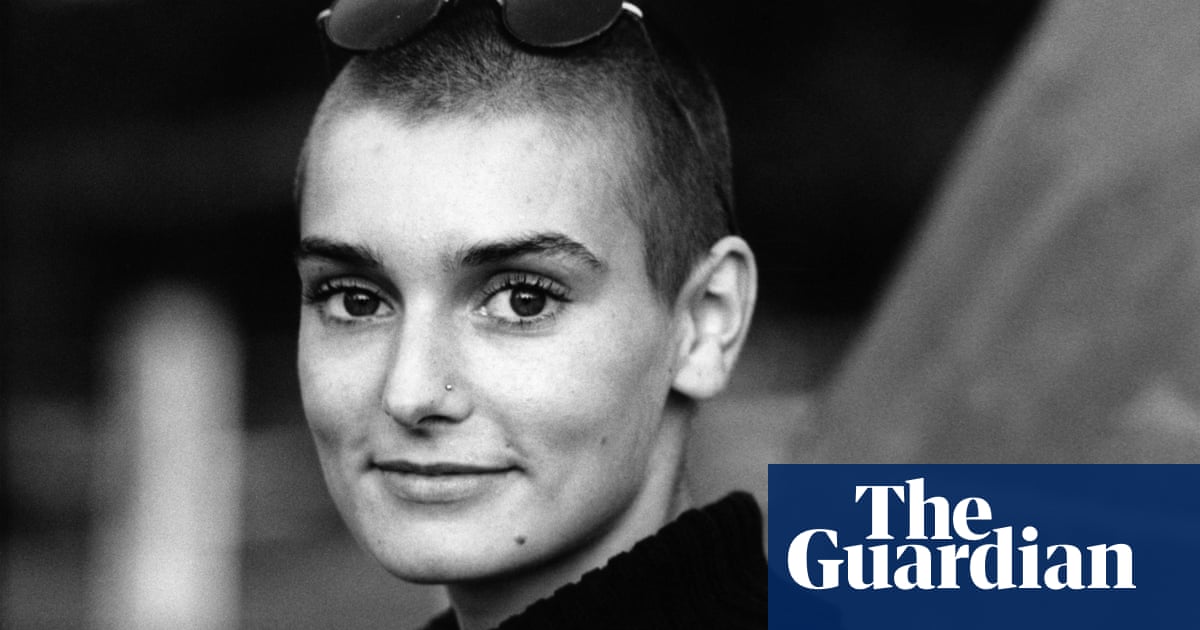
The crowd started gathering before sunrise, some coming to grieve Sinéad O’Connor’s death, others to celebrate her life, and all wanting to say goodbye.
By midday on Tuesday thousands were lining the seafront in Bray, the County Wicklow town the Irish singer had called home, to greet the funeral cortege.
Police motorcycles cleared a path for a van with speakers which played Bob Marley & The Wailers’ song Natural Mystic. The hearse appeared, bedecked in flowers tossed by the crowd. Vehicles with O’Connor’s relatives followed.
As the procession approached O’Connor’s former home people applauded. Others sang Nothing Compares 2 U and held up banners: “Thanks Sinéad. Rest in power.” “When words fail, music speaks.”
Candles, poems, tears and smiles completed an elegy in sunshine for a singular, ethereal voice that had sung and spoken about love and darkness.
Earlier, Umar al-Qadri, the chief imam at the Islamic Centre of Ireland, oversaw prayers at a private funeral service.
“Just as Sinéad O’Connor brought diverse souls together through her art, so have you orchestrated a symphony of unity during her final journey,” he told mourners. O’Connor had used the Muslim name Shuhada’ Sadaqat after she converted to Islam.
Police found the singer unresponsive in a south London flat on 26 July, prompting worldwide grief and tributes. She was 56. The cause of death remains unclear.
The Irish president, Michael D Higgins, and his wife, Sabina, attended the funeral service. “The outpouring of grief and appreciation of the life and work of Sinéad O’Connor demonstrates the profound impact which she had on the Irish people,” Higgins said.
O’Connor’s family had invited the public to pay their final respects on the Bray seafront, south of Dublin, where she had lived for 15 years. “With this procession, her family would like to acknowledge the outpouring of love for her from the people of Co Wicklow and beyond, since she left last week to go to another place.”
Cafes played her songs on a loop, the music seeping out on to the promenade. The Irish singers Bono and Bob Geldof were reportedly among the crowd.
“What can I say? Thank you Sinéad,” said Gemma Byrne, 47, who with three friends held a banner that said exactly that. “We grew up with her. She said what we felt but didn’t have the courage to say. She took the shit for it.”
Her friend Christine Joyce, 54, said O’Connor had made unforgettable music and highlighted clerical sexual abuse, and health issues, such as menopause and hysterectomies. “She blazed a trail for me about what it was like to grow old as a woman. I’m feeling really emotional. I heard her sing Molly Malone on the radio – such a trite song and I was bawling my eyes out.”
Mourners spoke of personal connections to O’Connor. “My daughter saw her on TV when she was six and was mesmerised by her for the rest of her life,” said Teresa Haynes, 75, holding a white rose. Haynes’s daughter, Tess, killed herself four years ago. Coming to Bray was an homage to both women, she said.
Rosita Stripinene, 50, from Lithuania, recalled the shock and glory of seeing O’Connor for the first time around 1990. “Living in the Soviet Union, she was one of the first foreign singers we saw. All my childhood I was looking at her beautiful eyes, her amazing eyes.”
O’Connor never fully reconciled to fame and stardom after her hit Nothing Compares 2 U. She had periods of mental ill-health and a turbulent private life, but found a refuge of sorts in Bray.
Erika Doyle, a Green party councillor for the town, said: “After she moved in, very quickly the novelty factor wore off and people just did what Irish people tend to do – remained unimpressed, but in the best sense of the word.
“She became one of our own and someone we tried to protect from the less nice aspects of fame, like obsessive fans or paparazzi. There was an unspoken agreement that she was one of ours and that we would look out for her.”
The mix of grief and celebration felt appropriate, said Doyle. “It probably reflects her. I’m not sure she would want a crowd of sad faces dressed in black.”
O’Connor’s seaside idyll was shattered in January 2022 when her 17-year-old son Shane was found dead in Bray after leaving a hospital where he had been on suicide watch. She had three other children.
Jackie Fleming, 60, from Drogheda, had risen at 5.30am to join the crowds. “The abuse she suffered as a girl – I could relate to that. And then losing her son – I think I’d have died of a broken heart too.”












